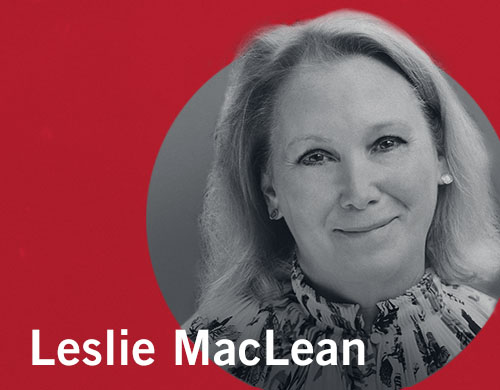 March 31, 2021
March 31, 2021 Leslie MacLean joined Waters Kraus Paul & Siegel in 2001, became a partner in 2005 and has been the managing partner of our firm’s Dallas office since 2018. Before attending law school, Leslie worked in the Texas Legislature as a legislative assistant and as the committee clerk to the Texas Senate State Affairs Committee. She has taught continuing education courses for lawyers and paralegals and is a former associate editor of the Appellate Lawyer. Leslie is a member of the American Association for Justice, the Public Justice Foundation, the Texas State Bar Association, the Texas Trial Lawyers
Association, where she served as a board member, and a member of the Dallas Trial Lawyers Association. She was admitted to the State Bar of Texas in 1995 and the State Bar of Pennsylvania in 2011.
See what Leslie had to say during our Women’s History Month Women In Law Roundtable Q&A.
Waters Kraus Paul & Siegel: According to the American Bar Association, there are approximately 1.4 million licensed attorneys in the United States. While there may be obvious overlap in experiences and reasons for choosing to become a lawyer, no two people are the same. What, or who is it that inspired you to pursue a career in law?
Leslie MacLean: Both my grandfather and father were lawyers. At our family dinner table, there was always conversation about how best to help others, and my dad believed that the legal profession was a great way to do so. Grandfather, too. Those conversations are what inspired me to pursue a legal career.
WKPS: Continued determination and a tough work ethic are part of a universal code shared among successful attorneys. In fact, a career as a lawyer has been a hallmark of prestige for generations now. But what exactly enabled your career to flourish? How would you personally encourage young girls thinking about becoming attorneys but are scared of the challenges that lie ahead?
LM: Once you understand that there are many ways to use a law degree––not just as a courtroom lawyer––you can start to explore what works for you. A law degree provides a great base of knowledge for many opportunities – business, non-profit/public policy, and of course, the more traditional law firm setting. Decide what you like to do and then work to find the best fit for you. I feel very fortunate to work in a firm that has always valued my skill set and allowed me to flourish within the firm (and outside the firm) utilizing it.
WKPS: Amid the COVID-19 pandemic, many routine legal proceedings like working from the office and court attendance have been suspended or amended. How have these changes impacted your own career? As a professional, what are the biggest challenges faced when working from home?
LM: I miss the face-to-face interaction with the people I work with. But I don’t think that has impaired my ability to do my job, but I do miss seeing people and catching up on what is going on with them – harder to do on a Zoom call. Having said that, when we were physically in the office, my office was a revolving door, and I do find that I am more productive now that I have blocks of quiet time that I really didn’t have when we were in the office.
I think that even after the pandemic has ended, people will demand flexibility in their work environment, and allowing some flexibility will become a recruiting tool for law firms. Traditionally, law firms have been pretty rigid in that regard, and I think the market will demand that we adjust accordingly. Reliable technology is a must.
WKPS: Where do you think we are in terms of gender equality in the legal profession? Do you believe that people’s expectations of women lawyers have changed in the past 50 years? Or will the majority of Americans always be more willing to put their faith in men practicing law?
LM: As a legal profession, we have come a long way, but we have miles to go before there is complete equity in the practice. Some practice areas are more progressive than others. But I’ve seen great progress in the last 15 to 20 years, and mostly because young women coming into the profession are more willing to speak out and make demands that require equity in a way that I may not have been comfortable doing so 15-20 years ago.
WKPS: What do you think needs to change in our society, or possibly even in our world, for women to be given their fair share in their legal professions, and every other profession?
LM: Women (and men) need to see women in leadership positions in all practice areas. And women in leadership positions must lift up their female peers.
To read more interviews with our attorneys, check out our Waters Kraus Paul & Siegel Virtual Roundtable Q&A: Women In Law.


